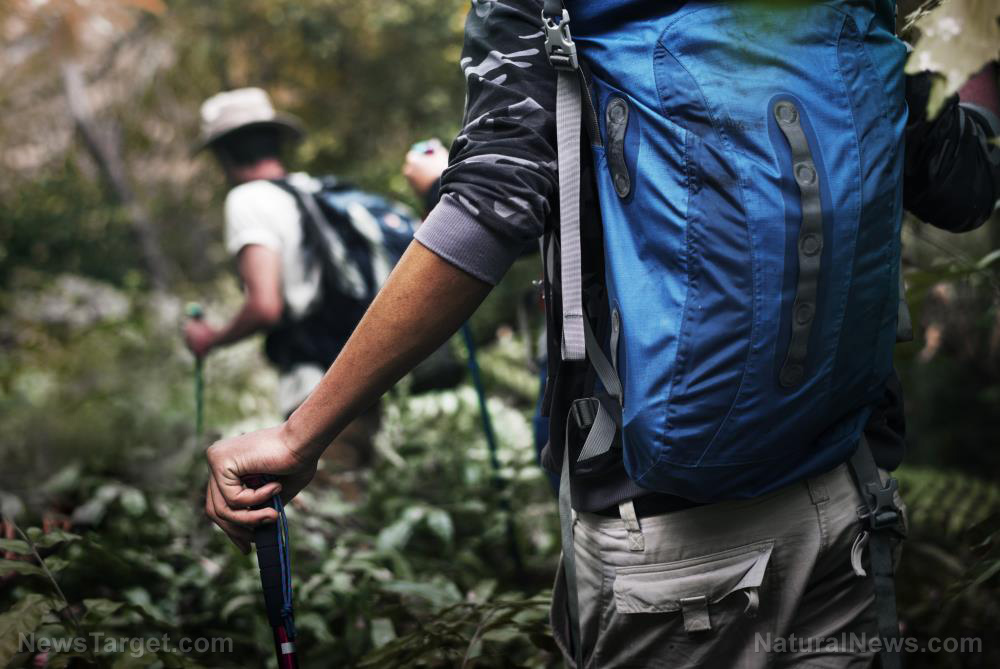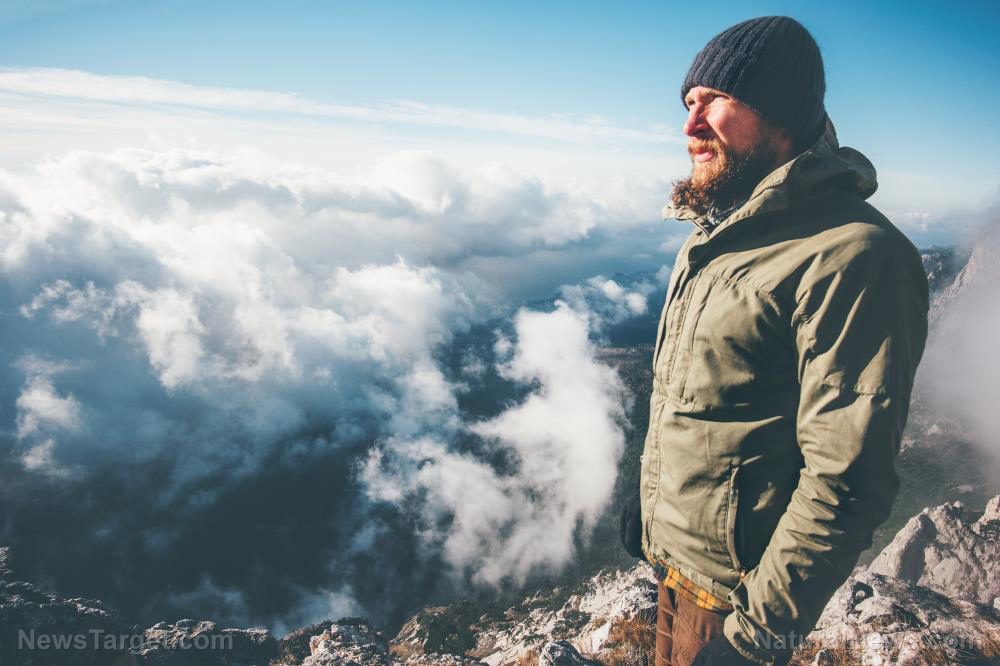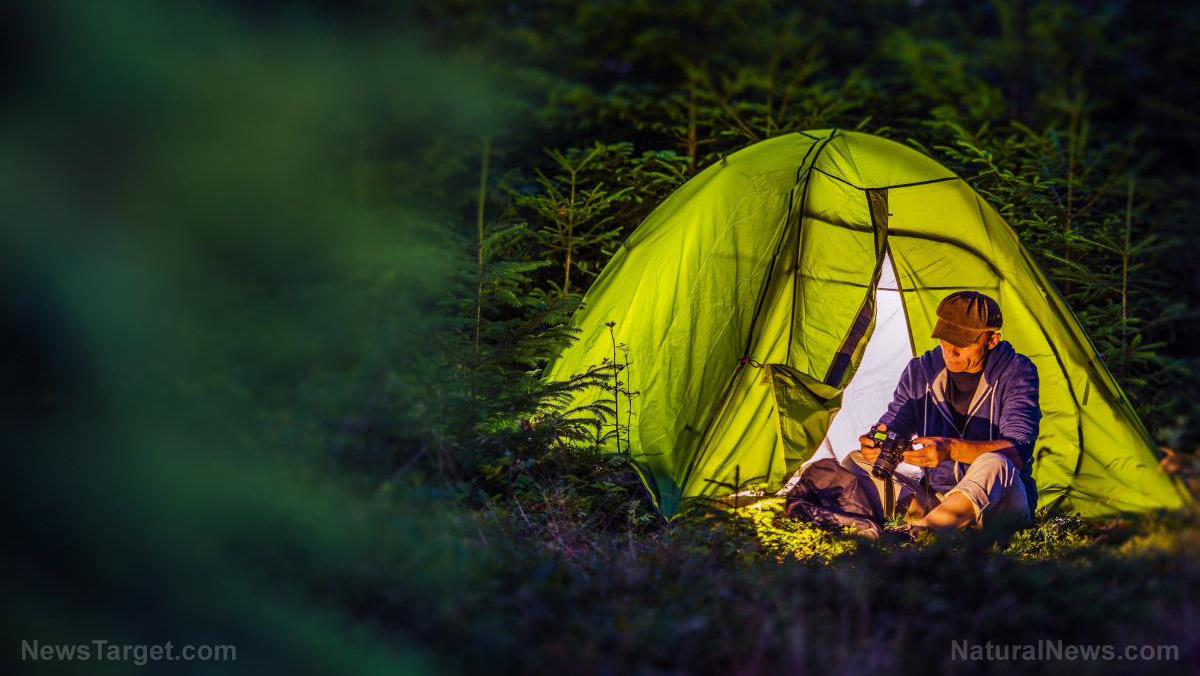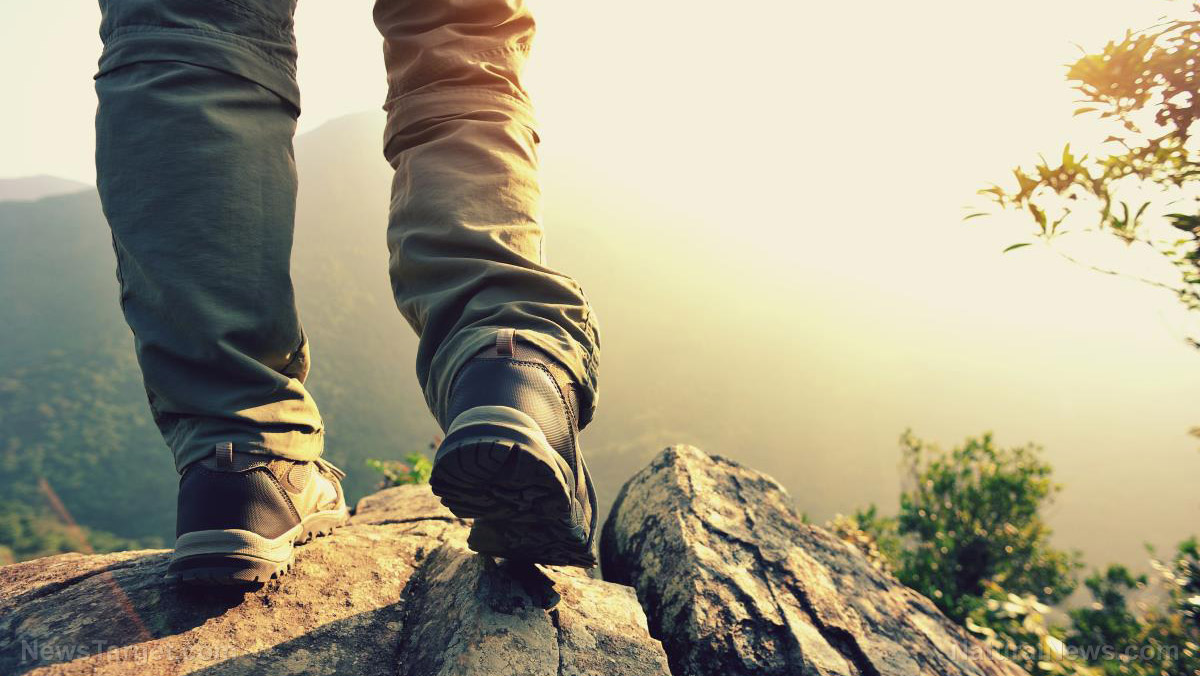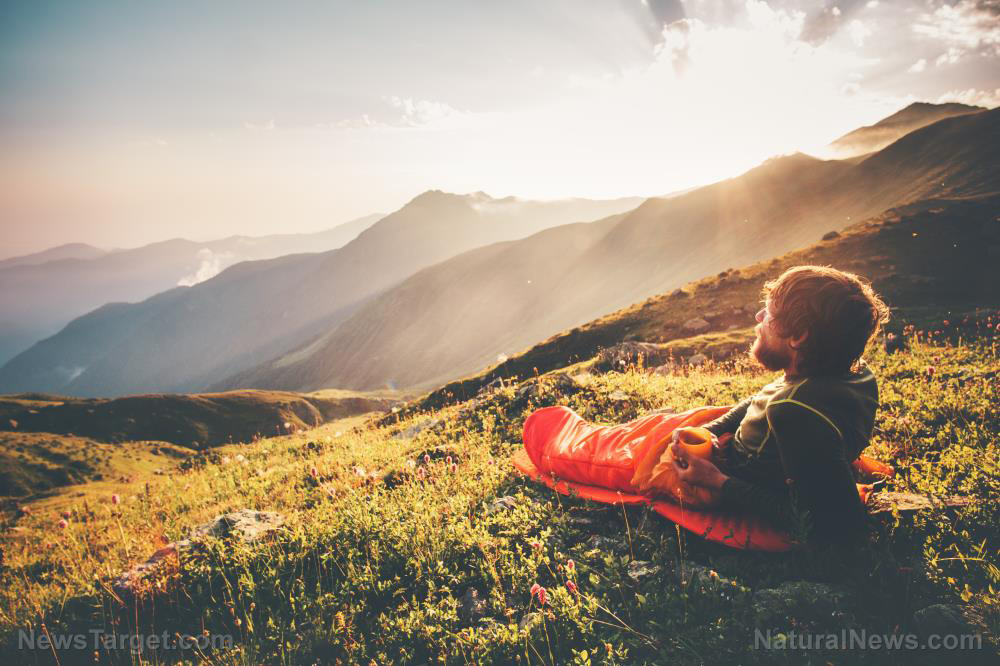
Camping is a great way to commune with nature. But preppers know that you need to be prepared for something to go wrong even during such a peaceful activity.
If you love going camping, you should be prepared for common camping mishaps like getting lost or treating minor injuries. (h/t to Survivopedia.com)
Common camping mishaps and how to address them
Campers know that whenever they set out to spend several days in the outdoors, you need to be prepared for common accidents, like getting injured while hiking to your campsite.
If you're new to camping, here are six scenarios that you need to prepare for.
Your raingear fails
Imagine hiking along an uncovered ridgeline when you're drenched in a sudden downpour. Your rain jacket and pants will be soaked immediately and even your waterproof hiking boots will fill up with water.
When going hiking, don't waste money on cheap, flimsy raingear. Invest in a high-quality raincoat, jacket and hiking boots. Before you head to your campsite, check the forecast, study weather patterns in the region and prepare a backup plan.
Your tent collapses
A tent will help you stay warm and protect you from the rain and cold when you're camping. But what if your tent collapses?
Check your tent before your camping trip. Bring supplies for tent repair you can quickly patch up tears.
Your tent repair kit should include these items:
- Heavy-duty duct tape for patching tears or rips and to prevent water from leaking in. You can also use duct tape to repair poles or ripped pole sleeves.
- Sewing needles and thread for repairing loose seams.
- A washcloth for wiping down the tent to keep it clean and to prevent water buildup.
The campfire goes out of control
You need a campfire to stay warm and cook your food. But if the fire goes out of control, you need to stay calm and put it out before anyone gets hurt.
Use wet towels or shovel dirt onto the fire to put it out. If you are near a water source, throw water around the perimeter of the fire using water buckets.
The campsite is attacked by a bear
Bears are motivated by two things: Protecting their young and looking for food. While you're more likely to injure yourself than get attacked by a bear, you need to keep your cool if you see one at your campsite.
Don't provoke the bear since it's probably just looking for food.
If you are attacked by a brown bear:
- Use bear pepper spray. Always bring bear pepper spray if you're camping in a bear country.
- Do not run. Stay calm, stand your ground and slowly reach for your bear spray. If you run, the bear will try to catch you. If the bear stands tall in curiosity, move away slowly with your spray in your hand. If the bear follows you, continue to stand your ground and use your spray if necessary. The best distance to spray at an attacking bear is 40 to 50 feet.
- If the bear charges, fall down into a fetal position while protecting your head, neck and stomach.
- If the brown bear continues to charge at you, play dead. Grizzlies only attack if they feel surprised or threatened and they may stop attacking when there’s no longer a threat. Don’t get up and run away until you're sure the bear has left.
You're injured
Make sure you always have a basic first aid kit in your camping gear so you can treat minor injuries even if you're on your own.
Stay calm, assess the injury and apply first aid. If required, seek medical attention at a nearby doctor’s office or hospital. (Related: Advanced prepper tips to take your prepping to the next level.)
You're lost
You should familiarize yourself with the campsite before leaving home to avoid getting lost. Plan a safe route, bring additional provisions and notify everyone of your whereabouts. Let them know how long you'll be gone so they will know if something goes wrong.
If you do get lost, stop wandering around and don't panic. Try to retrace your steps if you can. If it's dark, camp somewhere for the night and proceed in the morning.
Preparing an SHTF-proof camping bag
Choose a sturdy, waterproof bag for your camping gear so you can keep your supplies dry if it rains. Aside from food supplies and your tent, you should prep the following tools in your camping bag:
Knife
You'll need a sharp knife for self-defense or for various survival uses. It's best to bring a fixed-blade knife since it's more sturdy than a folding knife.
Cordage
Bring cordage like rope or paracord for emergency repairs or for setting up your tent. Paracord is strong, lightweight and doesn't take up a lot of space. If you dampen paracord before making your knots, it will tighten up once it dries.
You'll also need cordage to build emergency shelters, repair tents, attach gear to your backpack, or make a splint for broken bones.
First aid kit
Having a basic first aid kit ensures that you can treat injuries when SHTF even if you're lost in the woods alone. Your kit should include items that you may need for treating infections, heavy bleeding, or cuts.
Include items like antiseptic wipes, bandages, gauze and gloves in your kit.
Compass
If you get lost, you need to know how to find your way back with a compass and a detailed map of the area you are camping in. Use the compass to navigate the map to find a sign or a road that will get you to a safe location if you get separated from the rest of your group.
Emergency signaling devices
If SHTF while you're camping, a flashlight, flare, signal mirror, or whistle might save your life.
- Use a signal mirror to produce a flash that can be seen for miles by an aircraft. Flash an S.O.S. signal (three long flashes, three short flashes, three long flashes) across the sky to signal a pilot that you are in danger.
- Use a whistle to catch the attention of a passing car if you're near the main road or to alert fellow campers near the area.
- Use a flashlight to signal for help at night.
Sturdy water bottle
You need to stay hydrated while hiking or camping. Get a sturdy water bottle and fill it up whenever you can with clean drinking water.
Make the necessary preparations before camping so you can treat minor injuries or find your way back if you get lost.
Visit SHTF.news for more camping safety tips.
Sources include:
Please contact us for more information.















